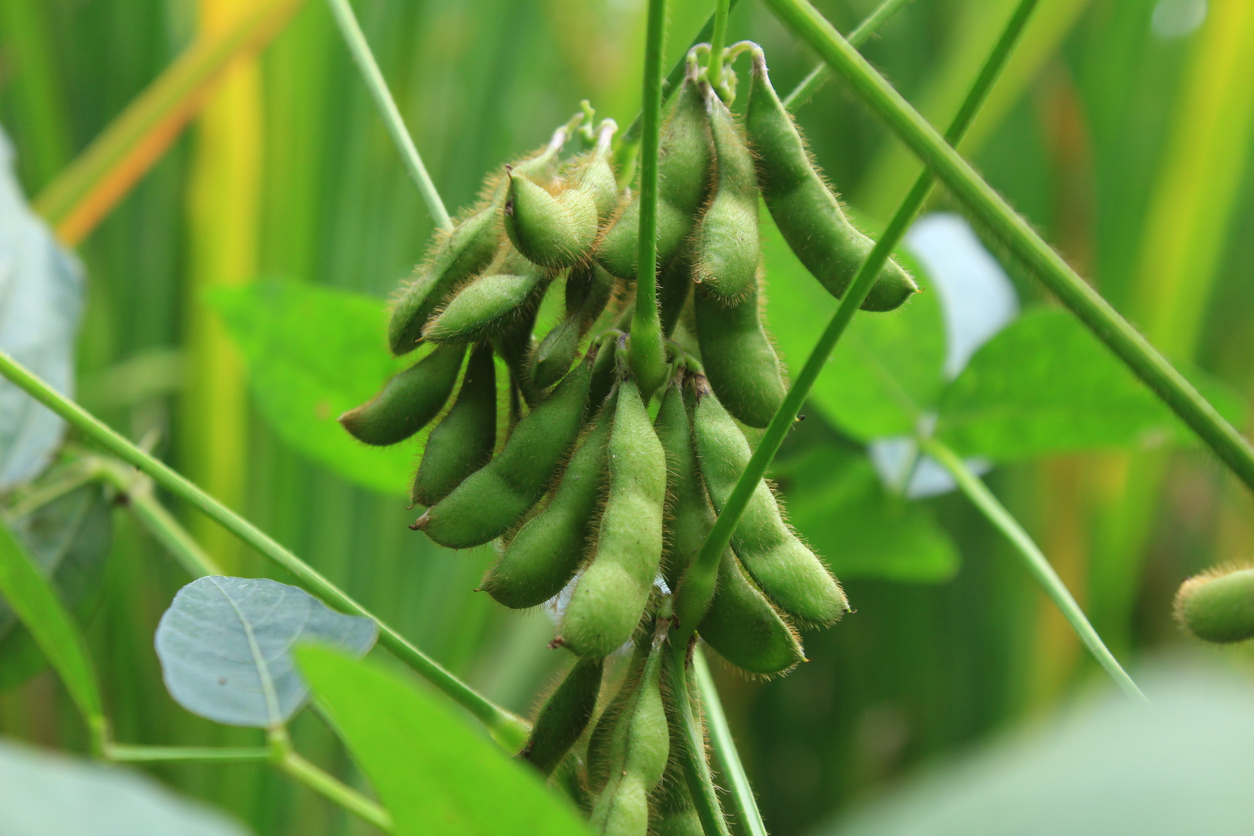
CRISPR-induced Mutations Lead to Soybean Cyst Nematode Resistance
November 29, 2023| |
Soybean farmers worldwide are losing billions of dollars each year to soybean cyst nematodes (SCNs), tiny worms that attack the roots of soybeans. Scientists from the University of Missouri and the University of Georgia have discovered a gene called GmSNAP02, which can protect soybeans from these pests. Their findings are published in Nature Communications.
SCNs are microscopic worms that live in the soil. They attack the roots of soybeans and suck out nutrients and water. This can cause the soybean plants to become stunted, yellow, and wilt. In severe cases, SCN infection can kill entire soybean plants. GmSNAP02 prevents SCN from infecting soybean plants through CRISPR-Cas9 gene editing, wherein loss-of-function mutations occur, implicating GmSNAP02 as a nematode virulence target.
The study results could lead to increased soybean yields, reduced pesticide use, and more sustainable soybean production practices.
Know more findings in Nature Communications.
| |
You might also like:
- USDA APHIS Deregulates Plant-Parasitic, Nematode-Protected, and Herbicide Tolerant GM Soybean
- Nigeria Releases National Guidelines on Gene Editing
- Pocket K No. 54: Plant Breeding Innovation: CRISPR-Cas9
Biotech Updates is a weekly newsletter of ISAAA, a not-for-profit organization. It is distributed for free to over 22,000 subscribers worldwide to inform them about the key developments in biosciences, especially in biotechnology. Your support will help us in our mission to feed the world with knowledge. You can help by donating as little as $10.
-
See more articles:
-
Gene Editing Supplement (November 29, 2023)
-
Research and Tools
- CRISPR-Based Editing of Wheat to Reduce Immunoreactivity
- CRISPR Improves Resistance of Banana to Xanthomonas Wilt Disease
- CRISPR-induced Mutations Lead to Soybean Cyst Nematode Resistance
- Gene Editing in Rice Leads to Broad-spectrum Resistance to Bacterial Diseases
- Gene Editing and Genetic Modification Technologies to Enhance NZ Pasture
-
Policy Considerations and Approvals
- More Info on EU Proposal Needed, European Scrutiny Committee Says
-
Read the latest: - Biotech Updates (January 21, 2026)
- Gene Editing Supplement (January 28, 2026)
- Gene Drive Supplement (February 22, 2023)
-
Subscribe to BU: - Share
- Tweet

